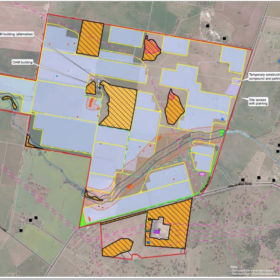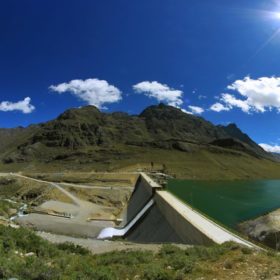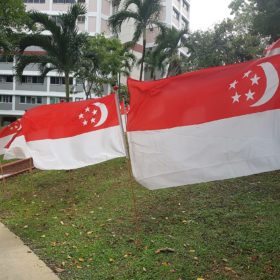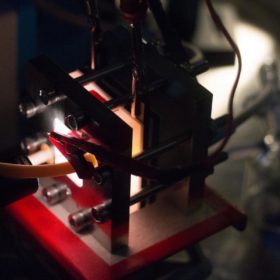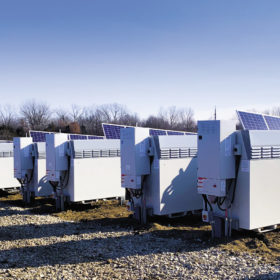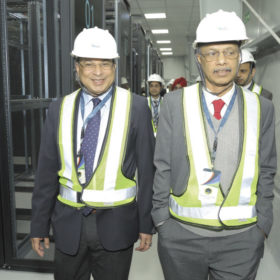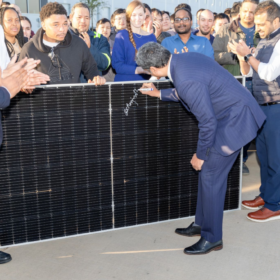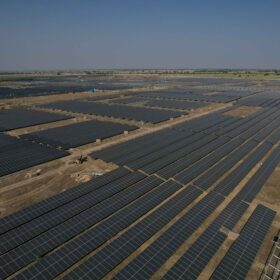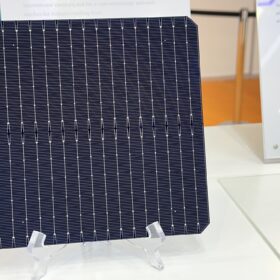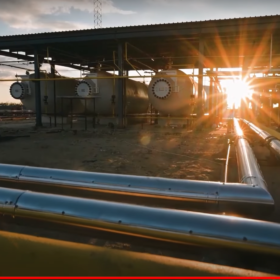The long read: South Korea’s burning issue
The string of fires that shook up South Korea’s booming energy storage market throughout 2018 brought development to a screeching halt this year. Throughout the lackluster first half of 2019, manufacturers, installers and analysts remained cautiously hopeful that a government investigation into the fires might plant the seed for late-year market growth. However, another outbreak of fires in the months since the conclusion of the probe has shaken industry morale once again, snuffing out any lingering hopes for a quick recovery.
Sterling & Wilson begins construction of 200 MW solar project in Australia
Two years after announcing its market entry, the India-based EPC heavyweight has commenced construction of its first Australian project.
Coupling pumped hydro with renewables and other storage technologies
The combination of pumped hydro with other storage technologies can increase renewables penetration, improve operational safety and reduce maintenance costs at large-scale hydropower plants, according to new research. The study also focuses on techniques to determine the optimal size of renewables-based pumped hydro storage systems. Costs for hybrid solar-pumped hydro projects currently range from $0.098/kWh to $1.36/kWh.
E-waste company opens battery recycling plants in Singapore and France
TES issued a press release announcing the new facilities that is light on detail but claimed the plants would position it as ‘a leader’ in battery recycling. The company also announced an intent to move into the reuse of spent electric vehicle batteries in commercial and residential applications.
Lithium batteries – 12 lakh tons ready for recycling by 2030
The recycling market will experience a tenfold expansion between last year and 2030, driven by EV battery usage and portable electronics. Retrieving valuable metals and minerals is becoming a high priority and several dozen companies are already in position for the first big wave of end-of-life batteries.
Ministry issues bidding guidelines for solar-wind hybrid projects
The Ministry of New and Renewable Energy has suggested minimum 25-year power purchase agreements and also opened up the option of including energy storage in solar-wind hybrid generation projects procured under its public tender regime.
Proposals invited for transnational projects on energy storage solutions
The aim is development of sustainable, integrated solutions for both short- and long-term storage. November 12 is the last date for submitting expressions of interest. Projects are expected to start before December 15, 2020.
Now Europe is pushing domestic battery manufacturing plans
EU industry body EUROBAT has called for the bloc to adopt a battery industrial strategy and has pushed the claims of domestic manufacturers in the same manner as India has, as the race hots up to dominate the global energy storage market.
The long read: Flow batteries scale up to GW production
Plans for a gigawatt factory in Saudi Arabia, bullet-proof warranties and an international vanadium rental service are propelling a new generation of batteries into the energy storage big league. Pioneers of redox flow technology claim that they can put an end to the degradation and safety issues afflicting lithium-ion batteries. They also expect imminent economies of scale to reduce the cost of bulk energy storage and unlock new markets for solar power.
The long read: The curious case of utility-scale storage in India
India’s transition toward electric vehicles and renewable generation makes a strong case for grid-scale battery storage. And with the government going all out to ensure that demand is met through local manufacturing, ample opportunity is being created for joint ventures – as the country, at present, lacks the requisite experience.

